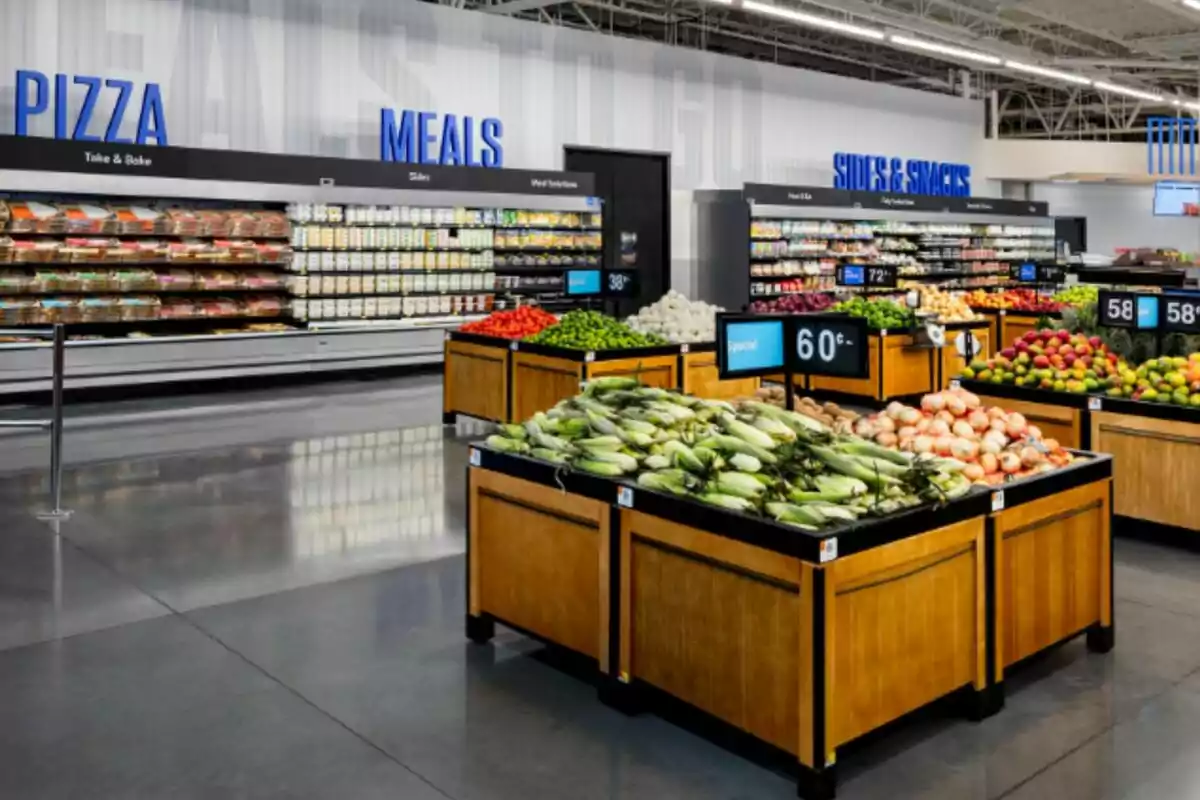
Walmart Deals a Blow to Costco and Makes an Unexpected Decision in the United States
An Unexpected Move by Walmart Puts Its Major Competitors in the United States in Check
The U.S. economy is going through a complex moment, affected by rising inflation and the boom in online shopping. In this context, the retail sector hasn't been immune to the challenges, with major chains like Walmart and Costco facing new challenges. Despite this, Walmart has made key decisions that will mark a turning point in its strategy.
The company has decided to close several of its less profitable stores in a move that surprises many. Over the years, Walmart has been characterized by its massive presence, but now it faces the need to adapt to new economic circumstances. Sales have dropped in the sector, and it is in this context that Walmart has shifted its commercial approach.

Walmart and Its Expansion Plan in New Areas
Although it has closed several stores, Walmart hasn't stood idly by; one of the sectors where it has found growth is in gas stations and convenience stores. The company has planned to open new service stations and smaller retail points as part of its strategy to diversify its offerings. Dave DeSerio, vice president of Walmart US, noted that the opening of new stations will offer more value to customers, according to The News Observer.
The service stations are an extension of Walmart's philosophy of offering low prices and convenience to its customers. This expansion meets the demand for quick shopping and reinforces the company's business model, adapting to the market.

In addition to gas stations, Walmart is increasing the number of Neighborhood Market stores, smaller establishments that focus on quick and convenient shopping. These stores are designed to be located in residential areas, making it easier for consumers to do daily shopping without the need to travel to a larger Walmart.
The Closed Stores: A Necessary Adjustment
Not everything at Walmart is expansion; as part of the restructuring, the chain has closed several of its less profitable stores. The closures have mainly affected cities like San Diego and West Covina in California, where competition from other retail chains is fierce. The closed stores include locations in key states like Georgia, Maryland, Ohio, Wisconsin, and Colorado.
Some of the stores that are no longer part of Walmart's operation include:
- Dunwoody, Georgia (Ashford Dunwoody Road)
- Marietta, Georgia (Walmart Neighborhood Market on Roswell Road)
- Towson, Maryland (1238 Putty Hill Ave.)
- Columbus, Ohio (3579 S. High St.)
- Milwaukee, Wisconsin (7025 W. Main St.)
- Aurora, Colorado (10400 E Colfax Ave.)
- San Diego, California (2121 Imperial Avenue)
- El Cajon, California (605 Fletcher Parkway)
- West Covina, California (2753 E. Eastland Center Dr.)
- Fremont, California (40580 Albrae Street)
- Granite Bay, California (4080 Douglas Boulevard)

These closures respond to a trend where large chains, affected by economic challenges and the rise of online shopping, adjust to the new reality of consumption. While some rural areas still depend on physical stores, large cities seem to be more demanding, forcing Walmart to adjust its physical presence in the country.
Walmart has shown a unique ability to adapt to changing market circumstances. In 2020, for example, the company launched Walmart+ in response to the success of Amazon Prime. The company also leveraged its physical stores to transform them into distribution centers, which allowed it to improve its delivery service.
More posts: